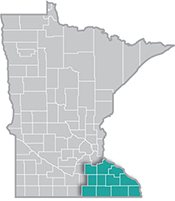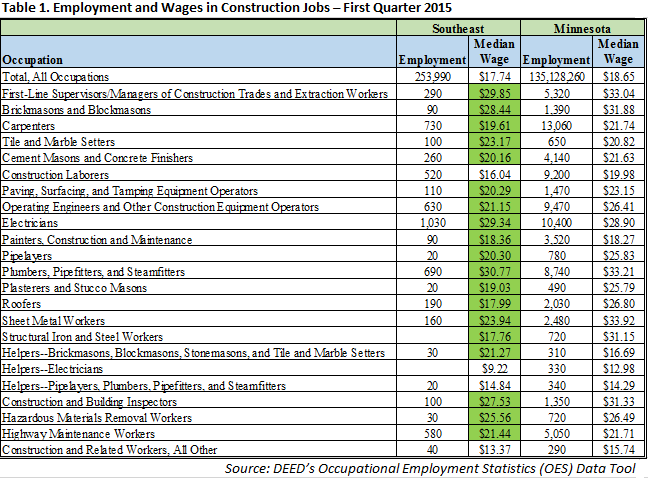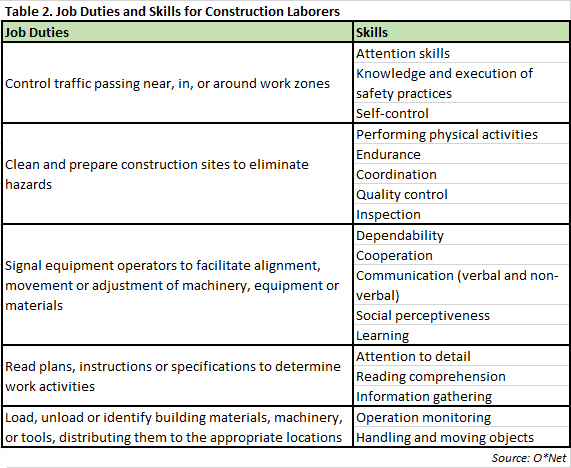 Southeast Minnesota is a health care and agricultural powerhouse. The region is home to the renowned Mayo Clinic and some of the world's most recognized food companies and brands.
Southeast Minnesota is a health care and agricultural powerhouse. The region is home to the renowned Mayo Clinic and some of the world's most recognized food companies and brands.
Advanced manufacturing is especially strong here, with machinery, chemicals, and electronics among the top products.
Want the freshest data delivered by email? Subscribe to our regional newsletters.
7/15/2015 2:23:55 PM
While driving down the highway on a beautiful summer day, Hannah decided she wanted some fresh air so she rolled her car window down... and there it was... the sweet smell of tar and blacktop. This is an experience most Minnesotans can relate to as the summer months bring about the construction season on our roads, as well as residential and commercial areas.
Though construction may be a hassle for drivers, it provides jobs for residents of Southeast Minnesota. Many of the jobs are seasonal, but they allow workers to earn income and learn and maintain valuable skills that can afford them opportunities to gain alternative employment during the off-season. It also provides summer work for individuals attending college, allowing them to make a good chunk of money to help them pay for school.
According to DEED's Quarterly Census of Employment and Wages, the construction industry provided over 8,500 jobs at 1,444 establishments in Southeast Minnesota, with a total payroll of $418.5 million in 2014. As shown in table 1 below, many of the jobs in the construction industry have a higher median wage than that across all occupations. In fact, over 80 percent pay more (shown in the highlighted boxes)!

Not only are jobs in construction plentiful in the summer months but they also provide individuals opportunities to learn and maintain skills that are transferable to other jobs once construction season is over. For example, table 2 shows the list of job duties for a construction laborer in the left column, while some of the skills needed to do these tasks are listed in the right column. The skills needed can apply to many other types of jobs other than construction.

Notice that many of the skills listed in the right column are soft skills, such as quality control, communication, and attention to detail, which can all easily be transferred to other jobs. It is difficult to think of a job in which being dependable is not a desired skill. Think about it... what supervisor does not want an employee that is going to do what is expected of them while on the clock? Even hard skills, such as the handling and moving of objects, can be very desirable in some fields such as manufacturing or warehousing.
Individuals in the construction industry may also have opportunities to learn how to properly use different tools and technology. For example, some of the tools used by construction laborers include: blow torches, boring and sinking machinery, levels, plaster and mortar mixers, power grinders, power saws, pressure and steam cleaners, vacuum cleaners, and water trucks.
So when you are stuck in a traffic jam or find yourself driving extra miles on a detour, just remember that the construction causing the delay is also helping to create a strong and talented workforce in Southeast Minnesota.
Contact Mark Schultz.